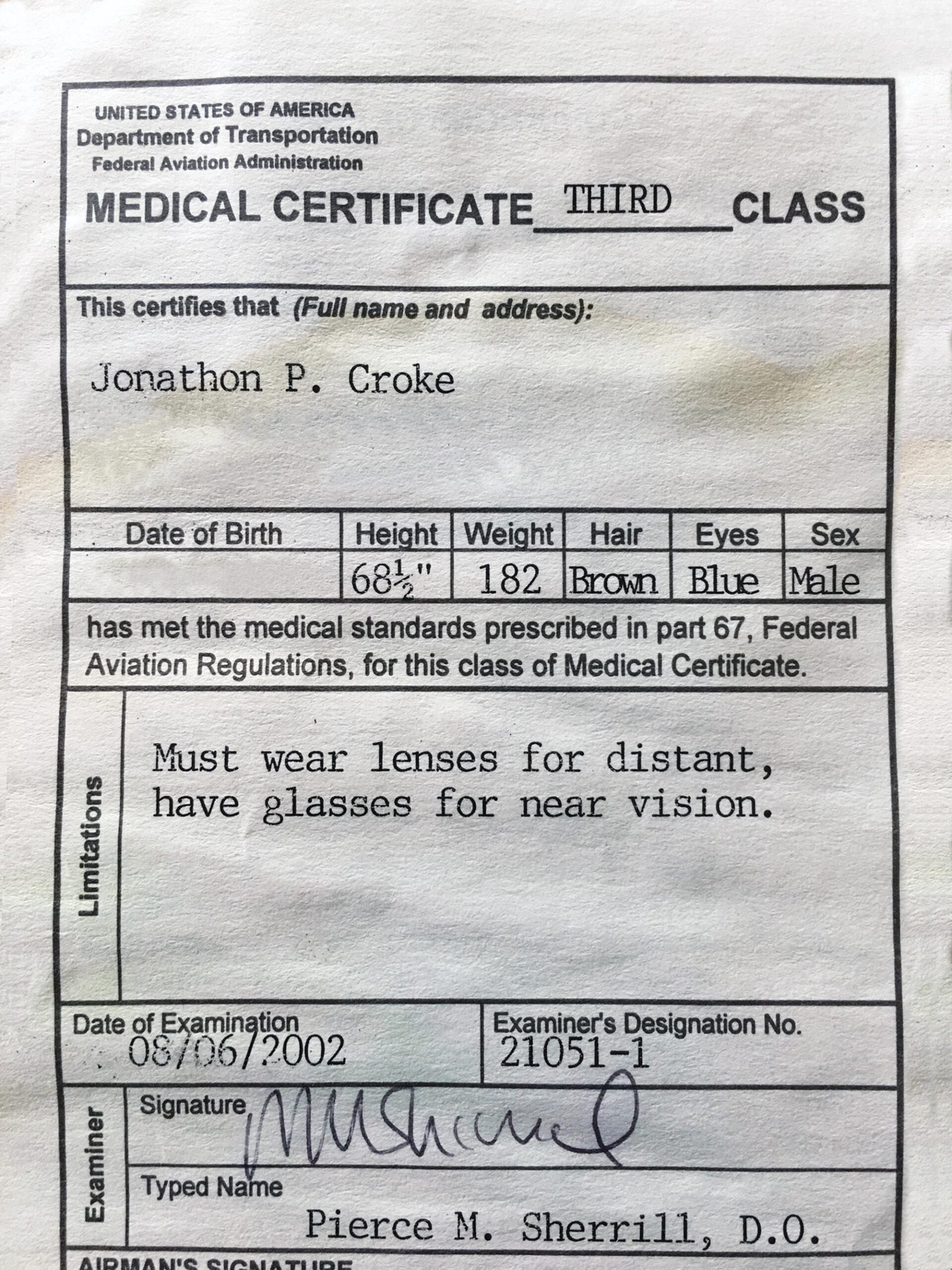
As I travel around the country in my ground-bound RV (yes, I am a bit of a snowbird), I can’t seem to help running into others doing the same travel thing. While striking up conversations and sharing your interests with others, it occasionally comes out that you are both pilots. However, one of you is active (that’s me) and the other does not fly anymore. I always ask why. Yet I can usually predict their answer before they speak.
Most responses are a bit convoluted. But with a little digging, I discover that renewing their medical ticket might be a bit challenging at their advanced age. They are referring, of course, to the traditional third-class (and above) medical exam that they satisfied years ago. We all know that medical questionnaires are loaded with questions that do not have black-and-white answers.
When I challenge their knowledge about all the medical options created in the last 15 years, they draw a bit of a blank. Without a doubt, a substantial pool of private pilots from years ago are just unaware of the choices that are available for renewing the medical to fly again.
Are you aware of the three distinct options a pilot can choose to satisfy the medical rules of flying? In the spirit of helping all pilots, especially the ones who have had a lapse in flying years, let us review the current options available for pilots of all ages.

Option 1: Third-Class Medical
Let’s start with the traditional choice, the one we all started with: the third-class medical. I won’t review all the details here for this one other than to say it is the gold standard and high bar of minimum requirements to prove you are healthy and fit to fly. It is the hurdle to fear from the standpoint that if you fail to pass this test due to a health shortcoming, it will be held against you on the permanent record. Therefore, this medical option is often avoided by older pilots looking to renew. You cannot get denied and continue to fly. If you apply and get denied, you’re practically done with flying.
Option 2: BasicMed
If your aircraft weighs less than 6000 pounds (and a few other limits) you might be interested in the medical option called BasicMed created by the FAA in 2017. Instead of renewing your third-class medical, a one-time visit with a family doctor who fills out and signs the BasicMed checklist form 8700-2 is all it takes!
In a nutshell, this form asks you and your doctor to affirm you are healthy enough for flying. You can shop for doctors who are willing to do this if your family doctor is unfamiliar with the form or is worried about liability issues. No fear of failing this application process, as results are not recorded by the FAA. Every four years you revisit a doctor to renew your status and take an FAA online course every two years. Clearly, this option is simpler and more forgiving than renewing the traditional third-class medical. The process reminds me a bit of the doctor’s examination for truck drivers. Those same doctors are typically familiar with BasicMed requirements and examinations.
Option 3: Sport Pilot—No Medical Needed
Can you fly without any medical ticket at all? Yes, you can! Under the Sport Pilot rules, you can fly an aircraft that meets the Light Sport Aircraft criteria if you have a valid driver’s license. This means the aircraft must be less than 1320 pounds gross weight, max of 120 knots and have fixed gear and prop pitch. There are other limitations, but these are some of the important ones.
Just to be clear: You can fly these planes with no medical exams, no questions asked. Just make sure you have a valid driver’s license and self-affirm that you are able to fly safely. The Sport Pilot option is why some smaller, lighter aircraft models have become so popular. This includes many aircraft in the Experimental category and a few in the certified arena (examples are some models of Piper Cub, Aeronca, Ercoupe, Taylorcraft and Luscombe).
The Fine Print
Certainly, this review of three options for satisfying the medical requirement of flying is just a short summary of the regulations, and there are details that need to be followed for each option. For example, you cannot have had a third-class medical denied, revoked or suspended when applying for BasicMed or flying under Sport Pilot rules. If any of these medical options are new to you and might help a fellow pilot who believes their flying days are medically over, please visit the FAA website for further details. Time in our lives is running out to enjoy flying while we can. Plane and simple.














Thank you for writing on this topic! Is it worth mentioning Touring Motor Gliders in this context? I believe they can be flown in the USA without a medical, and with the appropriate licence or rating, but I’m happy to be corrected. For sake of a source I would give https://flightphysical.com/pilot-medical-certification/exempt-operations but this of course is not the horse’s mouth so to speak.
WOW, I was totally ignorant of the BasicMed option. Thank you. I’ll going to get that completed ASAP and get to flying again. THANK YOU.